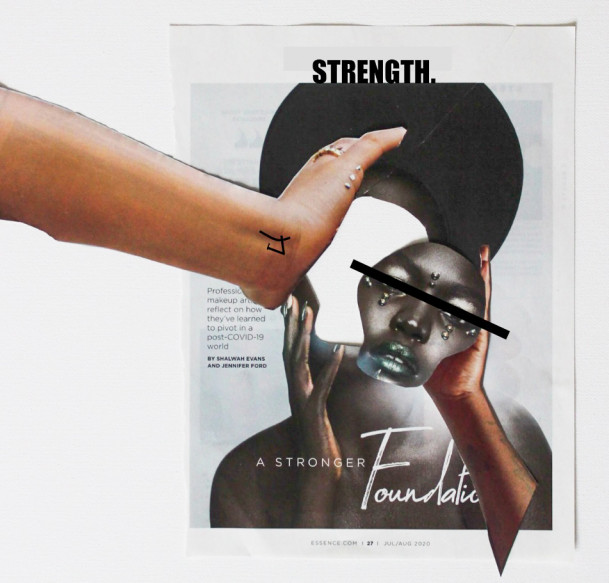Jael Griffin ’25

Alexander Weinstein and The Implications of Technology in the Future
“We were like babies. Like Adam and Eve” (Weinstein 84). As humans develop an inseparable connection between themselves and technology, the social construct is shifting. Humans are beginning to see a rebirth in how they innately operate as a result of the change in what it means to be interconnected with other humans, through a screen. In the short stories “Children of The New World,” and “Openness,” both from the collection Children of the New World, Alexander Weinstein displays the inevitable loss of control, loss of human connection, and exploitation of others that will continue to grow as the use of technology becomes more prevalent, and overtakes and defines society.
Weinstein’s work expresses a great loss of control as a result of technology, whether that loss of control in humans is of themselves or how their actions affect the people around them. In “Children of the New World,” this loss of control is evident as the characters begin their journey in a new world of technological advances to when the characters question how they possibly could practice restrain or contain themselves when immersed in this environment (84). In “Openness,” the main characters, Andy and Katie, give each other access to all of their inner thoughts, emotions and desires with no control over what the other person can see in their minds. This leaves them completely immersed in the idea of all-knowingness, and as a result they lose control of their own thoughts. This becomes clear when Andy recalls, “Feeling the closeness that sharing our layers brought, Katie suggested we give total openness a shot. It meant offering our most painful wounds as a gift to one another, a testament that there was no corner of the soul so ugly as to remain unshared” (193). The loss of control in both stories ultimately results in the destruction of Andy and Katie’s relationship. The same happens to Mary, her husband, and family in “Children of the New World.” Weinstein suggests that over-saturation in technology will impact human’s decision-making. In both stories, the characters act out of impulse because of their addiction to technology, indicating that loss of control over one’s life will only grow as social media and technology grow in value.
In addition to the apparent loss of control in Weinstein’s stories, readers, both stories indicate that human contact and connections will disintegrate as social media use is replaces real, palpable human experiences. Weinstein expresses a longing for real-life connection to further express the dissatisfaction and sorrow that accompanies only partaking in the 2-D version of real life that is social media. In “Children of The New World,” the narrator notes, “In this world, we seemed to understand, we were free to experience a physical connection that we’d always longed for in the real world but had never been able to achieve” (84). Readers further see this longing in “Openness” when Andy admits, “There was something beautiful about sharing things in the old way—the two of us walking by the shore, the smell of the pine sap, the summer air cooling the late afternoon—and for the first time in years, I wished I had a sketch pad with me…I tried to focus on each sentence, sensing my brain’s inability to turn her words into pictures” (189). Between these two exchanges, Weinstein stirs readers to think about what people are truly searching for in this new age of social media and technology, and suggests that it is actually only a distraction that we use to try to gain a sense of community or comfort. Weinstein reveals that the feedback-driven dopamine derived from social media is only going to distance us from one another and from the life happening around us.
Readers are also subtly exposed to the inevitable exploitation that will happen as a result of social media and technology in the future. In “Children of The New World,” Mary and her husband find out that they caused a virus and exposed their children to it, their lives corrupted by the indulgence in a new technology-driven world. Weinstein writes, “Sir, your account is corrupted. You will have to reset all files to the initial settings…The virus has spread to them. You will have to delete them and begin again. I’m sorry, sir” (93). Through this dialogue, Weinstein conveys that exploitation of people of all ages will spread, and is inescapable. The toxicity that exists within social media, and the habit humans have adapted to of reliance on technology, will trickle down through generations. Readers are further shown this in “Openness,” as Andy states, “Letting someone into every secret gave access to our dark corners, and rather than feeling sympathy for each other’s failings, we blamed each other for nearsightedness, and soon layers of resentment were dredged up” (195). The exploitation of the mind destroyed Andy and Katie’s relationship, because they had full access to each other’s thoughts and feelings. Weinstein shows readers that the overuse of social media, where people share all of their thoughts, feelings, and desires, is not only unhealthy but will result in exploitation and corruption in the near future and even today.
Overall, Weinstein’s short stories raise awareness of the dangers of social media and technology when abused. This abuse is already beginning to cause lasting effects on humans and will only grow, as there is a loss in connectivity between people, a loss of control of our own minds, and a growing normalcy and complacency in the exploitation of other people. Weinstein ultimately wants the reader to understand that we as humans need each other and that this longing will never subside, and that by trying to substitute this connection with technology we are only corrupting ourselves.
Works Cited
- Weinstein, Alexander. “Children of the New World.” Children of the New World, Picador, 2016, pp. 83-96.
- Weinstein, Alexander. “Openness.”